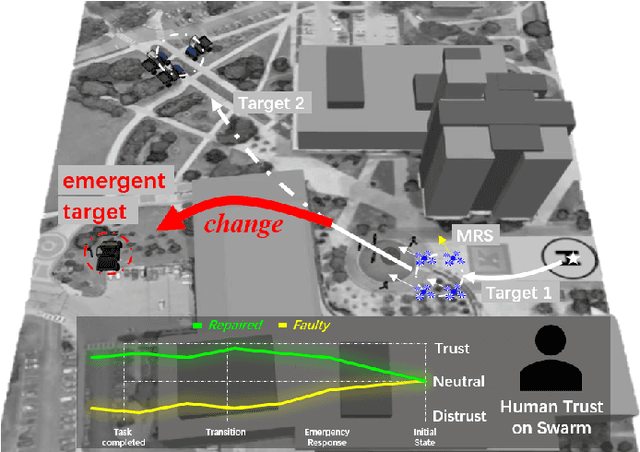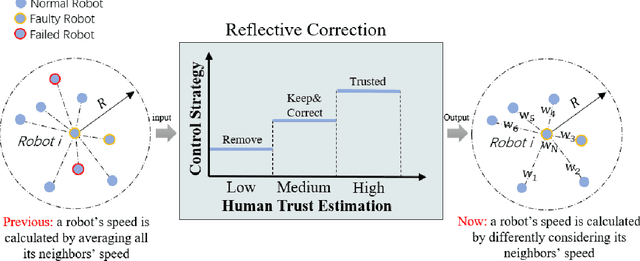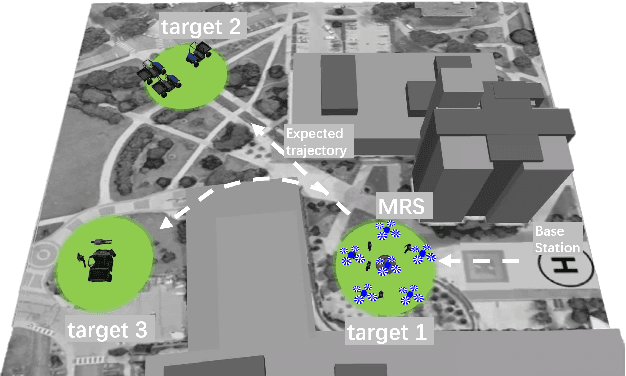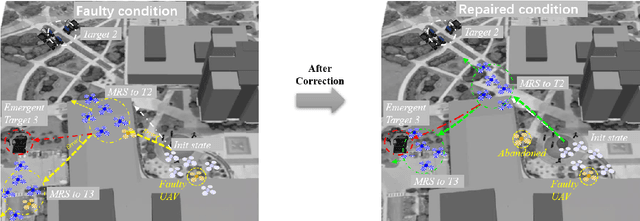Trust Aware Emergency Response for A Resilient Human-Swarm Cooperative System
Paper and Code
Jun 27, 2020



A human-swarm cooperative system, which mixes multiple robots and a human supervisor to form a heterogeneous team, is widely used for emergent scenarios such as criminal tracking in social security and victim assistance in a natural disaster. These emergent scenarios require a cooperative team to quickly terminate the current task and transit the system to a new task, bringing difficulty in motion planning. Moreover, due to the immediate task transitions, uncertainty from both physical systems and prior tasks is accumulated to decrease swarm performance, causing robot failures and influencing the cooperation effectiveness between the human and the robot swarm. Therefore, given the quick-transition requirements and the introduced uncertainty, it is challenging for a human-swarm system to respond to emergent tasks, compared with executing normal tasks where a gradual transition between tasks is allowed. Human trust reveals the behavior expectations of others and is used to adjust unsatisfactory behaviors for better cooperation. Inspired by human trust, in this paper, a trust-aware reflective control (Trust-R) is developed to dynamically calibrate human-swarm cooperation. Trust-R, based on a weighted mean subsequence reduced algorithm (WMSR) and human trust modeling, helps a swarm to self-reflect its performance from the perspective of human trust; then proactively correct its faulty behaviors in an early stage before a human intervenes. One typical task scenario {emergency response} was designed in the real-gravity simulation environment, and a human user study with 145 volunteers was conducted. Trust-R's effectiveness in correcting faulty behaviors in emergency response was validated by the improved swarm performance and increased trust scores.
 Add to Chrome
Add to Chrome Add to Firefox
Add to Firefox Add to Edge
Add to Edge